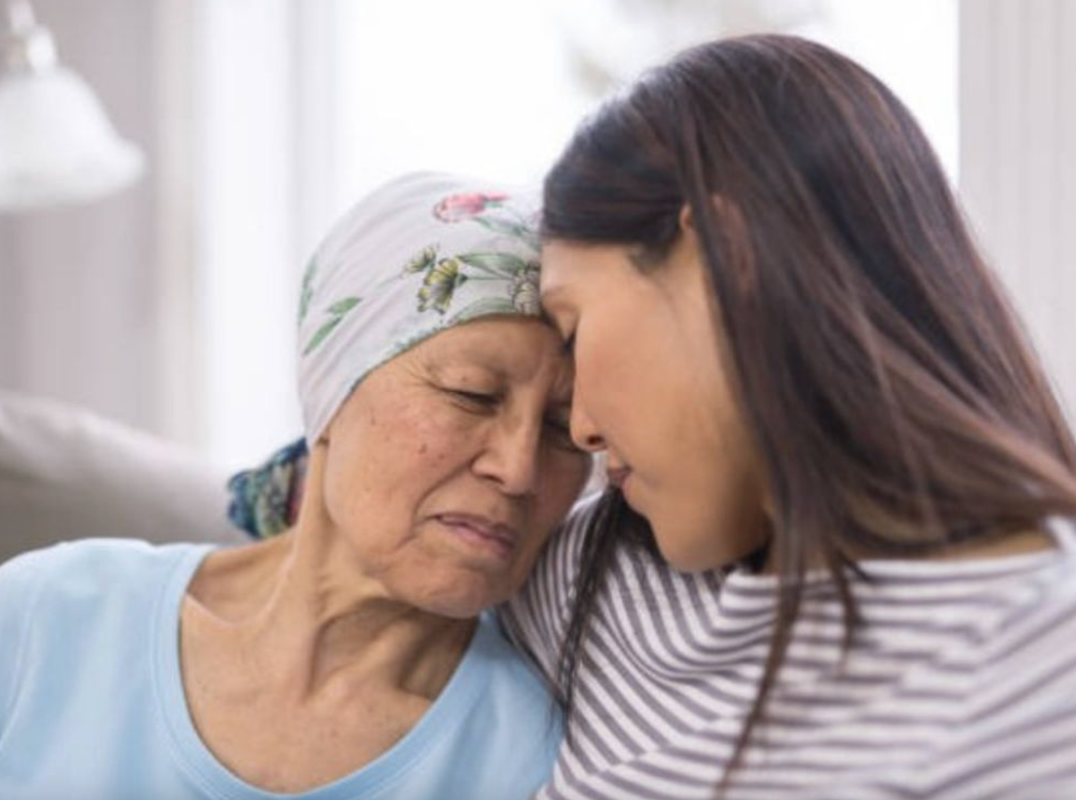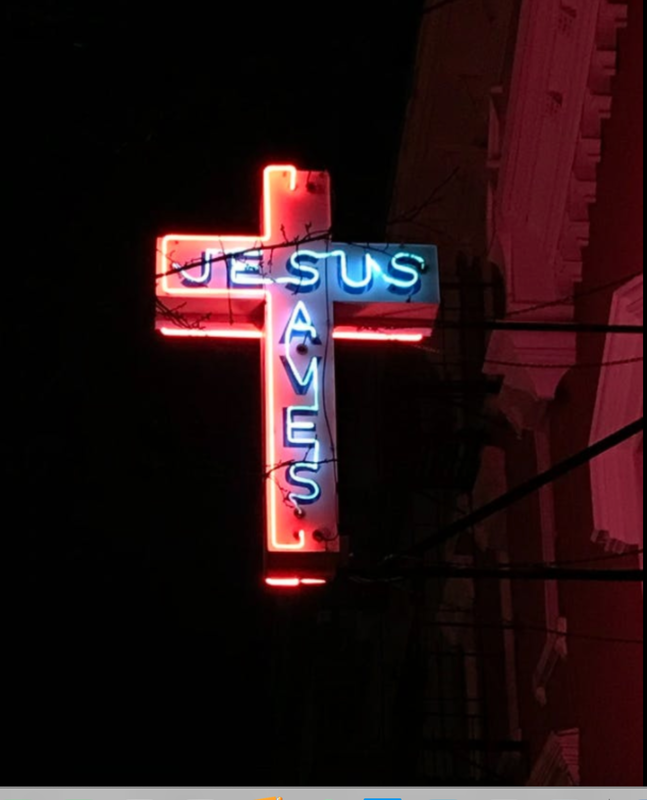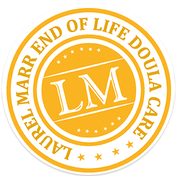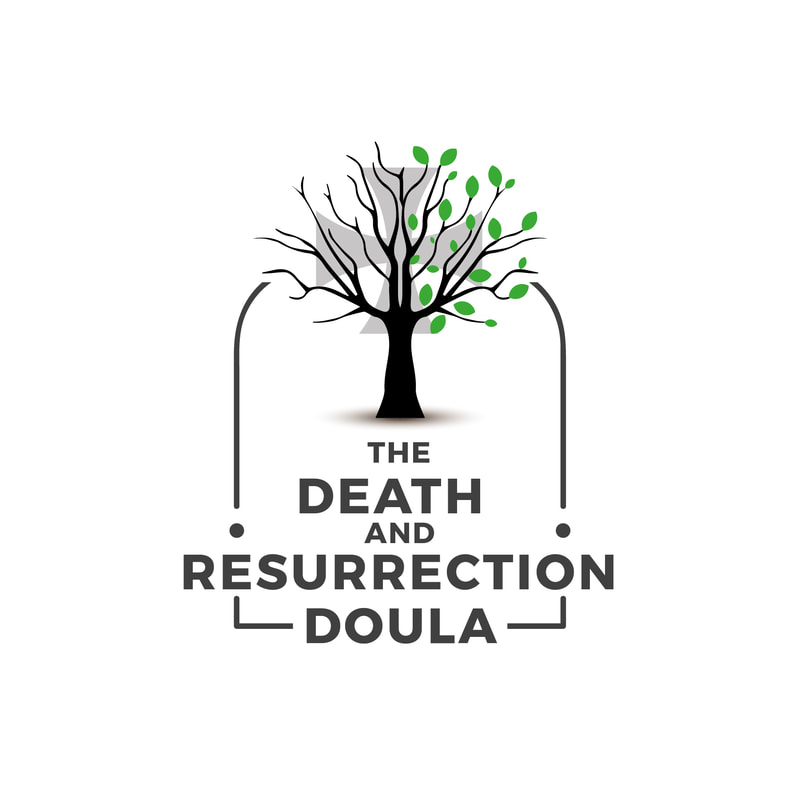End-of-Life Doula
Scope of Practice
What is a doula? Doula is an ancient Greek word meaning “a woman who serves.” While of course not all doulas are women, service is at the heart of doula work. If you have ever heard of a doula, it is likely around pregnancy and childbirth. An end-of-life doula (or death doula) is a non-medical practitioner trained to assist in the dying process. Through a holistic practice, doulas help families and communities care for someone who is dying. The concept of a doula is becoming a vital role in the end-of-life process as death doulas can help add quality of life to the end of life. Hiring a doula can transform the death experience for everyone involved. With the assistance of a trained doula, the end-of-life process can be proficiently less muddled, after-death planning can be made lighter, and the family can focus on being a family.
The role of an end of life doula is specifically designed to assist the patient and the family with understanding the natural process
of death (before, during, and after) while providing suggestions for comfort and support as well as advocating for autonomy
in the choices of the client and encouraging the best communication possible between family, caregivers, and professionals
working in the direct care of the patient.
Death has become a topic we avoid. Wellness is not complete if talking about death is forbidden.
Death Positive proposes an opportunity to explore death from practical, ritualistic, and spiritual points of view.
Why Hire an End-of-Life Doula?
It may be difficult for prospective clients to see the value of an end-of-life or death doula. There are a couple of reasons for this. One reason is that the role is relatively new. Many people are not aware of doulas serving in end-of-life care. This leads to the likely connection to the fact that many people are not aware of the needs that will arise when someone they love is facing death.
One of these needs is hospice care. But, hospice care alone cannot fulfill the dying person and his or her family's needs. Generally, the hospice team is well equipped to help patients and families work through fear and sadness, and a hospice social worker will assist individuals and families in locating additional resources, but even if a personal care aide is hired to be present in assisting with the activities of daily living, a family will likely still be overwhelmed with all of the needs that occur when someone is dying.
A doula is not a personal care aide and cannot administer medical services. If a certified doula also has a personal care aide certificate or nursing license, he or she may serve in multiple capacities if the services are agreed upon by both the doula and the person(s) receiving care.
The value of a doula lies outside of both the necessary personal care and medical care. A doula may overlap with the provisions of hospice care in a few different ways, but this does not reduce the necessity of a certified doula.
How does a doula participate in filling the gap experienced by families when a dying person is referred to hospice?
The role of an end of life doula is specifically designed to assist the patient and the family with understanding the natural process
of death (before, during, and after) while providing suggestions for comfort and support as well as advocating for autonomy
in the choices of the client and encouraging the best communication possible between family, caregivers, and professionals
working in the direct care of the patient.
Death has become a topic we avoid. Wellness is not complete if talking about death is forbidden.
Death Positive proposes an opportunity to explore death from practical, ritualistic, and spiritual points of view.
Why Hire an End-of-Life Doula?
It may be difficult for prospective clients to see the value of an end-of-life or death doula. There are a couple of reasons for this. One reason is that the role is relatively new. Many people are not aware of doulas serving in end-of-life care. This leads to the likely connection to the fact that many people are not aware of the needs that will arise when someone they love is facing death.
One of these needs is hospice care. But, hospice care alone cannot fulfill the dying person and his or her family's needs. Generally, the hospice team is well equipped to help patients and families work through fear and sadness, and a hospice social worker will assist individuals and families in locating additional resources, but even if a personal care aide is hired to be present in assisting with the activities of daily living, a family will likely still be overwhelmed with all of the needs that occur when someone is dying.
A doula is not a personal care aide and cannot administer medical services. If a certified doula also has a personal care aide certificate or nursing license, he or she may serve in multiple capacities if the services are agreed upon by both the doula and the person(s) receiving care.
The value of a doula lies outside of both the necessary personal care and medical care. A doula may overlap with the provisions of hospice care in a few different ways, but this does not reduce the necessity of a certified doula.
How does a doula participate in filling the gap experienced by families when a dying person is referred to hospice?
No Regulations on Time and Visits
A doula is not regulated by an insurance reimbursement structure. (This also includes the time before and after hospice care) A doula can stay with a family throughout the entire end-of-life process, which lasts much longer than the point
where the hospice team must exit the scene.
Professional Commitment
Some of the greatest services are done through volunteer work, but this should not underestimate the value of professional services. The unregulated time of a professional doula is a game-changer for families and dying people. A certified doula will guide a family every step of the way keeping everything organized and on time while offering a family the time to be with their dying loved one. A doula also incorporates faith-based grief care and engaged support from the faith community.
Community Engagement
Doulas serve as a link between church communities and the patient and family. What other needs need to be met? Housekeeping,
food service, visitation, respite care, prayer chains, and more.
Doula Care Services
Helping with memory projects and completing a life review have become popular doula services. A hospice volunteer could also help in some capacity with these important facets of death care, but hiring a Christian doula gives these tasks fresh importance. Regret and the need to clear up estranged relationships may haunt dying people and people they love. God’s unlimited grace and forgiveness provide the way forward. Joy and sadness should also be embraced at the end-of-life.
Comfort Care Plans
This work includes helping the family care for the patient, and establishing visitation schedules for community visitors, friends, and family. Doulas support families in keeping with the care plan for the highest dignity of the patient and peace of mind for the family. Oftentimes, panic sets in as death arrives. Doulas help families and patients through this difficult transition.
Vigil & funeral planning
Doulas help families prepare for the death vigil, a dynamic time of waiting and expectation for Believers. Once a death has occurred,
the funeral displays the family and community's faith in God and their commitment to the deceased human being.
Doulas can assist in preparations for this event.
Continued Support
New needs will arise after a death has occurred and a family settles into a new way of life.
A doula that has journeyed with a family will stay a supportive presence in the days to come.
________
Pricing:
Individuals: $75 per hour (10 hours @10% off with 50% deposit)
Families: $110 (10 hours @10@ off with 50% deposit)
Pricing:
Individuals: $75 per hour (10 hours @10% off with 50% deposit)
Families: $110 (10 hours @10@ off with 50% deposit)
Christians believe Jesus died for our sin... and that He
|
Heather C.|Austin, TX
"In 2022 my brother, Scott was diagnosed with Lymphoma and was hospitalized in New York City. I was unable to be by his side at the time for I lived in another state. Laurel Marr, was a close friend of Scott’s and provided her Doula services to him and our family. Laurel kept me updated weekly on his condition along with being there for me for any questions or concerns I had. The information and utmost care she provided to my brother and I during this difficult time will never be forgotten. Scott lost his battle with cancer which left me devastated. Laurel helped me plan the memorial service and reception. She provided love and comfort to me and she guided me with grace and love. Without her services, I would have been lost. I am truly Thankful for her kindness and help. I highly recommend Laurel Marr. She is the angel we all need when the world is falling down around us."





